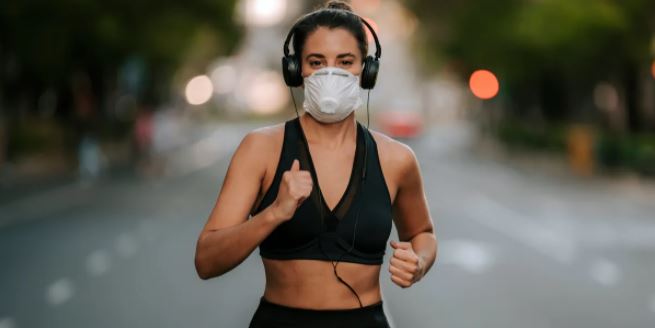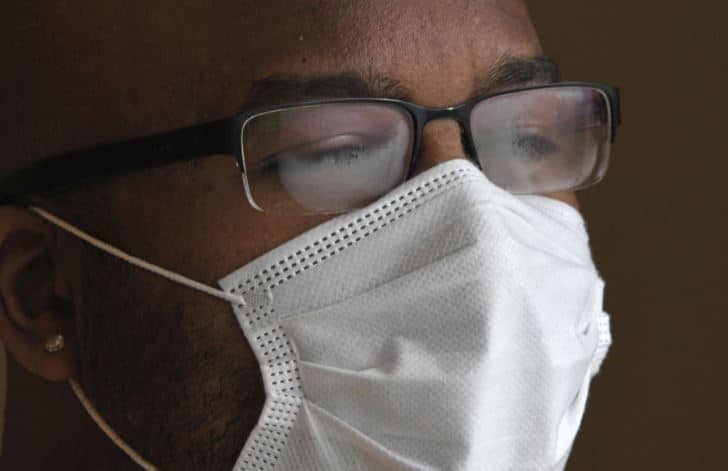Your face mask has a dual duty: it stops you from transferring the bacteria and can prevent certain bacteria from entering you. The masks, however, can also cause unpleasant side effects, especially when used ignorantly. Here’s what they are and how they can be avoided. Read on and don’t miss these sure signs if you have the viral disease to maintain public health or others’ safety.
Contents
Problem For Eyes

Wearing a face mask causes the exhaled air to meet the skin, creating an unpleasant sensation and a desire to touch the eyes. You’re infecting yourself because both palms are contaminated. After contact with substances such as door handles, elevator buttons, packages, or anything where bacterias live, avoid the urge to contact the face, and wash your hands with soap for a few seconds. Since our nerves are connected, it might also affect your brain.
They Are Uncomfortable

Using the correct mask begins by finding the proper material. Cotton material is considered to have good ventilation and will trap less of the moisture that builds up. Make sure that it’s snug, not tight. You don’t want it to be so close that it affects your skin, but you want it to fit well to help stop vapor droplets from leaking or going in.
Restricted Airflow

Through this article, Lazzarino points out that face masks make ventilation harder. For women with COPD, a respiratory failure that causes reduced air quality, face masks are unbearable to wear because their shortness of breath worsens. Also, for each breath-hold, a portion of carbon dioxide already breathed is inhaled. These two effects improve respiratory frequency. This can exacerbate COVID-19’s burden if more pollution is released by infected patients wearing gas masks, he continues. If the improved breathing forces the virus to load back into the lungs, this could also be life-threatening for infected people. You should isolate yourself away from others and drop the masks if you are suspected of having COVID-19. To discuss the next steps, contact a medical professional.
Glasses Fog Up

It dissipates into the surrounding air as you breathe heated air while wearing a mask. It appears to shoot up into your reading glasses if you ever do it wearing masks, fogging them up. Wash your glasses in soapy water and allow them to air dry. The film must prevent fogging. Another strategy is to evaluate the fit of your face mask. Positioning a folded tissue between your mouth and the mask is a simple hack, but it might give you a dry mouth if you keep the mask on for too long due to lack of oxygen. The tissue will absorb the humid water droplets, preventing them from touching your glasses. Also, make sure that the top of your mask is tight and that the bottom is loose to help steer the expiratory air away from your eyes.
A False Sense Of Security

Do not think of your face mask as the cape of Superman, a kind of bullet-resistant shield which covers you from the coronavirus. In addition to the evidence-based, strong recommendations that are already in place on physical distance, regular handwashing, and regular disinfection of frequently touched surfaces, masks must be worn.
Skin Irritation

It’s best to wash your face before wearing a mask if you have skin problems and CNet reports. This will help avoid inflammation of the skin from where the mask rubs the face. If you have skin irritation, you may want to completely forget the makeup under your mask and cleanse your face before wearing a mask, Cnet reports. Not to mention, your mask could also rub off by the foundation, resulting in reduced air filtration, making it more difficult to breathe.
Harmful For Children

Small children under the age of 2, anybody who has breathing issues, or is unconscious, debilitated, or unable to remove the mask without assisting, must not be placed on cloth face veils. Under such conditions, don’t use masks.
Cloth head coverings should be—according to the CDC,
Align against the side of the mouth snugly yet comfortably,
Ties or ear loops should be secured.
Include several fabric layers
Allowing unlimited breathing
It is possible to wash and dry the device without harm or shapeshift.
Facemasks are vital components of health professionals’ personal protective equipment (PPE), especially since they are dealing with lung disease, such as the March 2003 outbreak of extreme acute respiratory syndrome (SARS). Seto et al. (2003) conducted a case study in medical centers in Hong Kong involving 241 – anti health care workers and 13 infected staff who were given out to 11 SARS patients and came to an end that droplet SARS was contagious.
Distancing

There is a major difference in the quality and volume of expression between 2 people wearing gas masks, and they can unintentionally come closer. They might forget about social distancing while talking.
Conclusion
In the United States, surgical masks treated with nano-functional materials were shown to have a significant capacity to inactivate bacteria (Yao et al. 2004). It is necessary to understand the effect on heat stress and discomfort of wearing various types of facemasks, as the filtration efficiency is comparable among surgical and N95 face masks, or whether the micro treatment impacts heat discomfort. We present an experimental analysis in this paper. Many health care professionals are nowadays in food and drug administration, and they themselves don’t have precautions.


